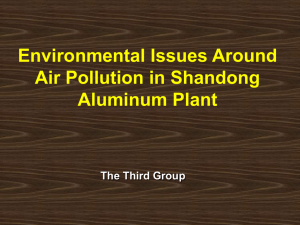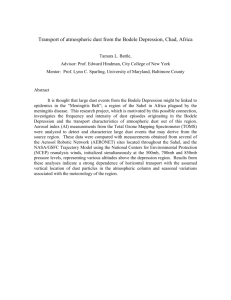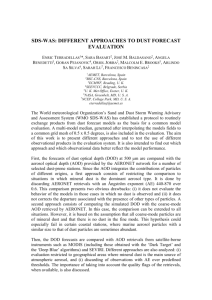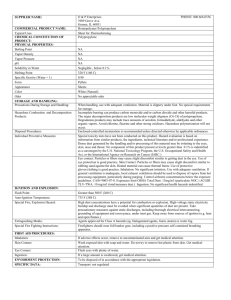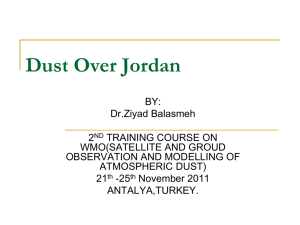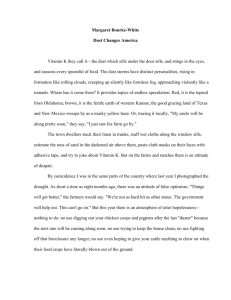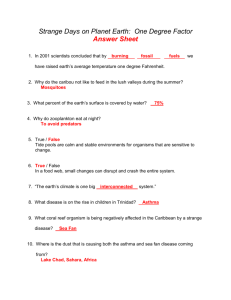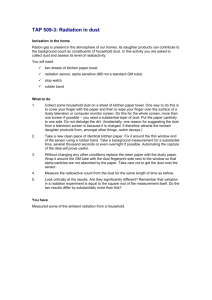Background - Northern Africa-Middle East-Europe (NA-ME
advertisement
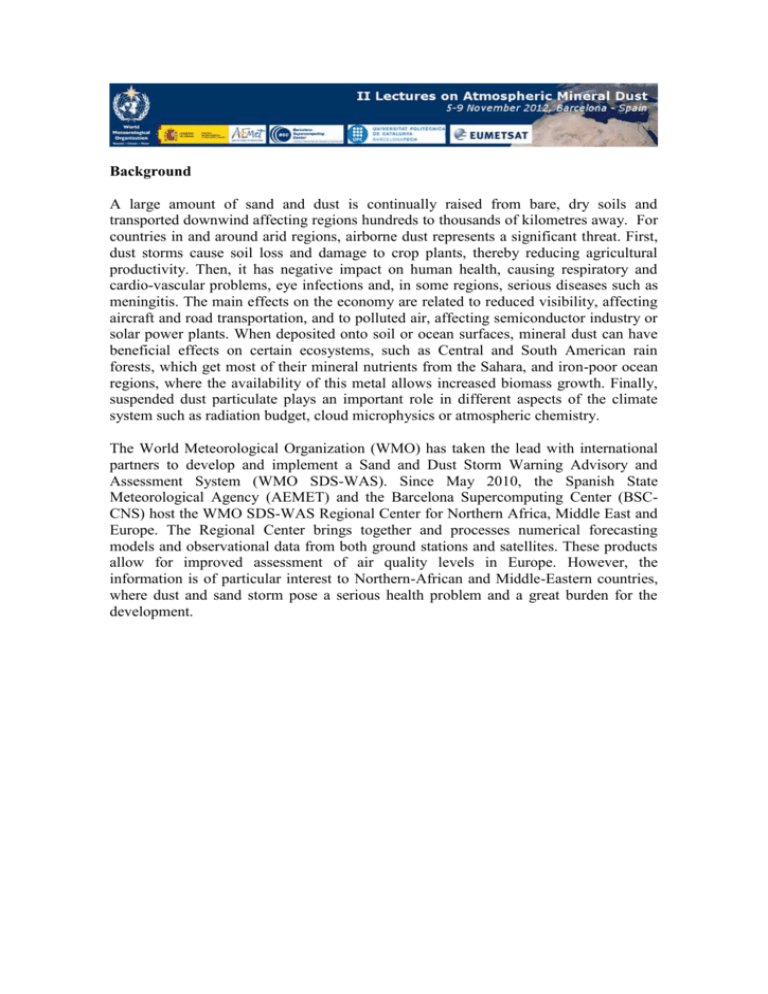
Background A large amount of sand and dust is continually raised from bare, dry soils and transported downwind affecting regions hundreds to thousands of kilometres away. For countries in and around arid regions, airborne dust represents a significant threat. First, dust storms cause soil loss and damage to crop plants, thereby reducing agricultural productivity. Then, it has negative impact on human health, causing respiratory and cardio-vascular problems, eye infections and, in some regions, serious diseases such as meningitis. The main effects on the economy are related to reduced visibility, affecting aircraft and road transportation, and to polluted air, affecting semiconductor industry or solar power plants. When deposited onto soil or ocean surfaces, mineral dust can have beneficial effects on certain ecosystems, such as Central and South American rain forests, which get most of their mineral nutrients from the Sahara, and iron-poor ocean regions, where the availability of this metal allows increased biomass growth. Finally, suspended dust particulate plays an important role in different aspects of the climate system such as radiation budget, cloud microphysics or atmospheric chemistry. The World Meteorological Organization (WMO) has taken the lead with international partners to develop and implement a Sand and Dust Storm Warning Advisory and Assessment System (WMO SDS-WAS). Since May 2010, the Spanish State Meteorological Agency (AEMET) and the Barcelona Supercomputing Center (BSCCNS) host the WMO SDS-WAS Regional Center for Northern Africa, Middle East and Europe. The Regional Center brings together and processes numerical forecasting models and observational data from both ground stations and satellites. These products allow for improved assessment of air quality levels in Europe. However, the information is of particular interest to Northern-African and Middle-Eastern countries, where dust and sand storm pose a serious health problem and a great burden for the development.

